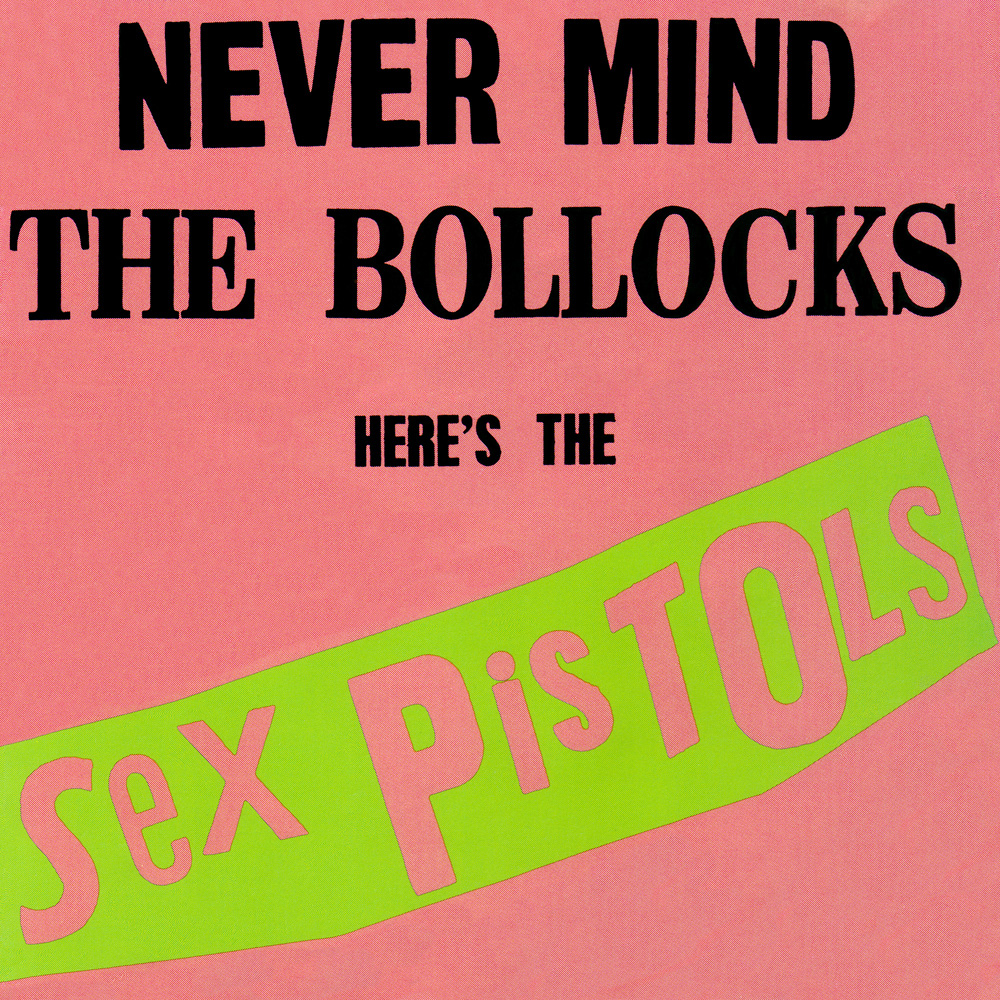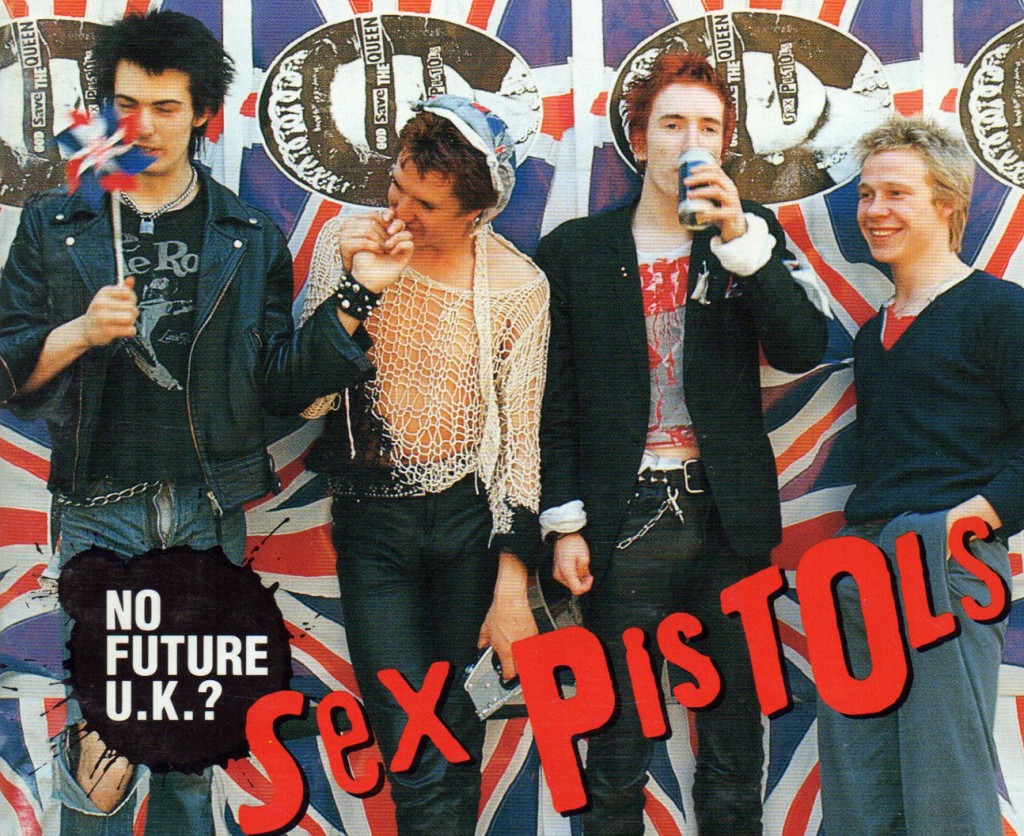 They came on, back in 1976, as a musical teardown crew, lobbing verbal wrecking balls at the likes of McCartney, Jagger and Rod Stewart. So, why was their first album produced by two pros who’d helped birth The White Album and Dark Side of the Moon and abetted recordings by such old-guarders as Eric Clapton, Roxy Music and the Moody Blues?
They came on, back in 1976, as a musical teardown crew, lobbing verbal wrecking balls at the likes of McCartney, Jagger and Rod Stewart. So, why was their first album produced by two pros who’d helped birth The White Album and Dark Side of the Moon and abetted recordings by such old-guarders as Eric Clapton, Roxy Music and the Moody Blues?
Because their accumulated expertise made Chris Thomas and Bill Price the right guys for the job—that of constructing a loud, brick-hard long-player out of the dozen tunes from a newbie band, the Sex Pistols—frontman John Lydon (Johnny Rotten), bassist Glen Matlock (who played on the album although he’d already been replaced in the band by the far less competent Sid Vicious), drummer Paul Cook and guitarist Steve Jones—that was notoriously longer on attitude than chops.
 They did their job. Released in the U.K. on October 28, 1977, Never Mind the Bollocks: Here’s the Sex Pistols—bollocks being a British slang word for testicles—still impresses, as a seething sound-wall that really does clear the ground for a more direct form of rock ’n’ roll than that era dared favor. It’s dense and dark-hued and, hindsight reveals, nowhere as fast as the punk that preceded (Ramones) or followed it (hardcore), built mostly on midtempo rockers that serve as fuel-efficient vitriol-delivery vehicles. In fact, while the album’s sonic face-punch is as bracing as ever, there’s a sense that the songs’ subject matter and sentiments were often chosen primarily for their shock value.
They did their job. Released in the U.K. on October 28, 1977, Never Mind the Bollocks: Here’s the Sex Pistols—bollocks being a British slang word for testicles—still impresses, as a seething sound-wall that really does clear the ground for a more direct form of rock ’n’ roll than that era dared favor. It’s dense and dark-hued and, hindsight reveals, nowhere as fast as the punk that preceded (Ramones) or followed it (hardcore), built mostly on midtempo rockers that serve as fuel-efficient vitriol-delivery vehicles. In fact, while the album’s sonic face-punch is as bracing as ever, there’s a sense that the songs’ subject matter and sentiments were often chosen primarily for their shock value.
[The album reached #1 in the U.K. almost immediately, on Nov. 12, and as import copies were selling briskly in the U.S., it was released stateside in late November.]
Among them: anarchy, abortion, the sins of the royal family and a Nazi death camp, alongside livid attacks on such soft targets as a record label and a newly defunct glam-rock band.
Listen to “Holidays in the Sun” from Never Mind the Bollocks
“Anarchy,” in fact, is what made the album an unprecedented event upon its release and renders it a fun listen all these decades later. It can probably still clear a room. Check out this live 1976 version from British television.
Despite their proclamations, the Pistols didn’t completely cut the cord with the past. Isn’t the underlying riff of “Submission” a slow-paced variant on “All Day and All of the Night,” and couldn’t the foreboding intro to “Bodies” have come straight from Tony Iommi’s dexterous fingers?
Related: When Sid Vicious went on trial for murder
Listen to “Submission”
Never Mind the Bollocks: Here’s the Sex Pistols and its attendant singles ultimately proved to be all the group had to give. Mired in controversy from the start—they were ejected from two record labels, EMI (which became the subject of one of their songs) and A&M—before they signed to Virgin and cut the album, the Pistols weren’t to be long for this world. Only a few months after the release of the album, at the end of their only U.S. tour, the band split up, with Vicious dying in 1979 of a drug overdose and Lydon forming the more successful Public Image Ltd. (aka PiL).
Related: 10 great punk tunes
Most U.S. rock radio stations, having no clue what to make of the punk phenomenon at this early stage, stayed clear of the album, and it only made it to #106 in the States despite all of the news the band generated. Not that that mattered in the long run: Today, Bollocks is considered a cornerstone of that movement and remains a powerful document of a much-needed musical upheaval.
Watch the Sex Pistols perform “God Save the Queen” live during their 2007 reunion tour
Related: Sometimes rock is a real riot
- 15 Rockers’ Early Days: Before They Were Stars - 02/19/2024
- Before They Were Stars: More Early Recordings From Rockers - 09/05/2023
- 10 Classic 1967 Debut LPs by California Bands - 08/23/2023






3 Comments so far
Jump into a conversationThis wonderfully exciting album still stands up all these years later. No fillers.
Matlock did NOT play on the album. At all. Steve Jones played bass on ALL of it,with Sid’s bass buried low in the mix on Bodies
The album release was anti climactic and relatively late in the short fast history of punk. The band’s big bang came with the release of their first single, Anarchy in the UK, in November 1976.